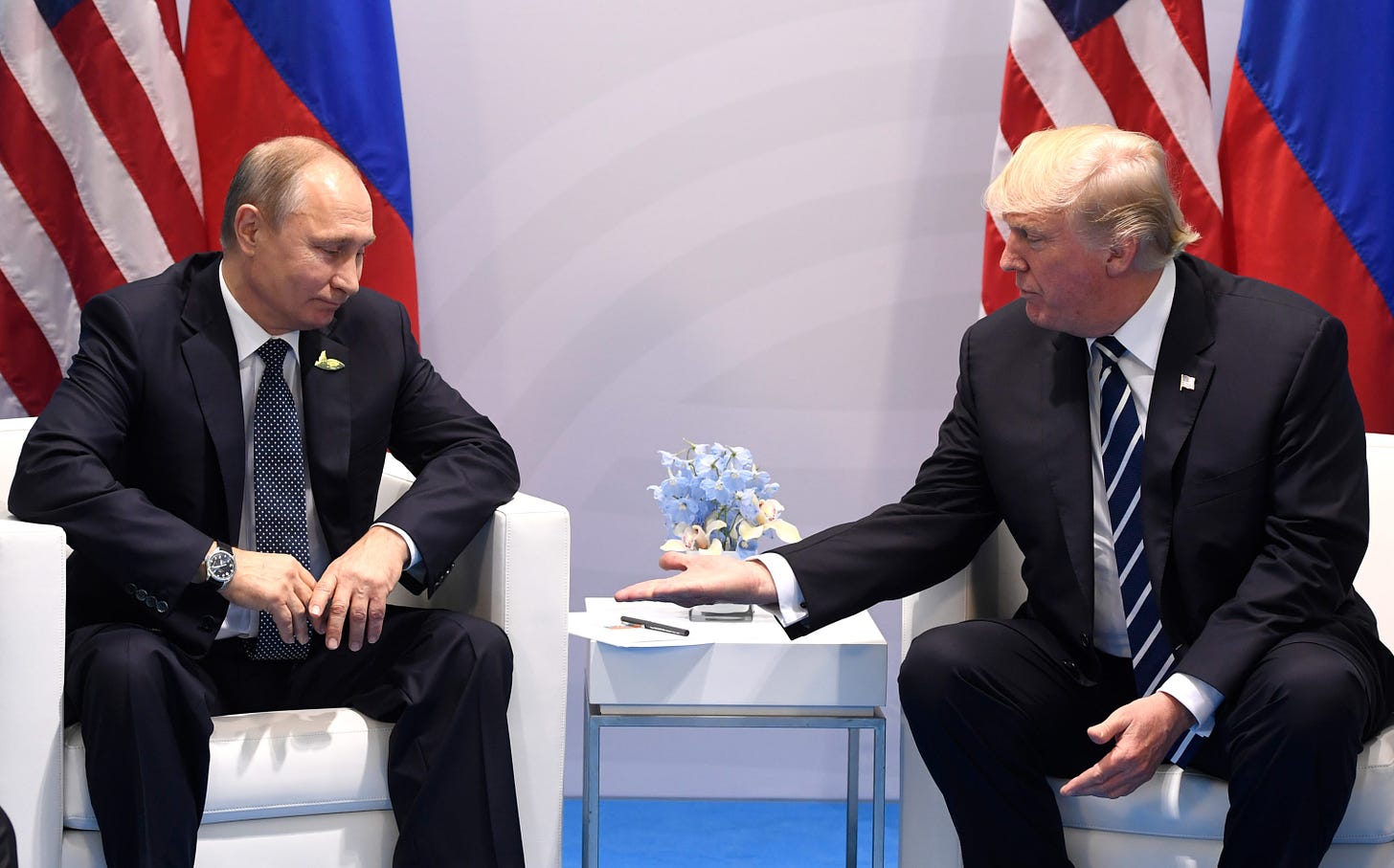Confronting Putin Requires More Backbone, Not More Understanding
Calls for the Biden administration to appoint a special envoy imagine that Putin can be reasoned with. He can’t.

Most presidential transitions offer opportunities to reexamine relationships between the United States and other countries. Despite the strangely friendly relationship between President Donald Trump and Russian President Vladimir Putin, the U.S.-Russian relationship is in abysmal shape. This has led to calls from some experts for the incoming Biden administration to increase dialogue with Moscow, appoint a special envoy to try to repair the relationship, and focus on solving problems between the two sides. That is a bad idea.
To be clear, it was a bad idea before the recent disclosure that the SVR, Russia’s equivalent to the CIA, was behind the worst cyberattack in U.S. history. The hack breached U.S. government agencies, along with numerous companies and think tanks, on a massive scale. Despite President Trump’s tweets downplaying the attack and deflecting blame from Moscow, consistent with his pattern over the past four years of refusing to criticize Putin, a growing chorus in Congress is calling for a serious response to this most recent example of Putin’s aggressive behavior.
This latest attack should dispel any doubts that Putin’s regime poses a hostile threat to the United States. Before these most recent disclosures, Russian hackers launched ransomware attacks against American hospitals and medical facilities in the middle of a pandemic. Such actions are not those of a friendly nation, to say the least.
These cyberattacks are the latest egregious behavior by the Putin government. After all, under Putin’s leadership, Russia has invaded the neighboring states of Ukraine and Georgia and occupies territory in both countries, along with the breakaway region of Transnistria in Moldova. The Kremlin has provided support to the authoritarian Lukashenko regime in Belarus and intervened militarily on the side of the regime of Syrian leader Bashir al-Assad, where Russian mercenaries attacked American soldiers and Russian soldiers continue to harass American forces. In the Western Hemisphere, Putin’s regime supports Nicolas Maduro in Venezuela, while in Asia, Russia has defied international sanctions on North Korea. The Wagner Group, a mercenary paramilitary organization controlled by close Putin associate Yevgeniy Prigozhin, represents a dangerous privatization of Putin’s foreign policy, causing havoc in places like Libya and the Central African Republic.
Those living in Russia who are seen as critics and political rivals of the regime, even journalists, face risks every day, whether being labelled a “foreign agent,” being murdered yards from the Kremlin (Boris Nemtsov in February 2015) or being poisoned by Russian security agents (Vladimir Kara-Murza and Aleksei Navalny). The outrageous arrest of Navalny upon his return to Moscow last Sunday on absurd charges stands in stark contrast to Russian authorities' refusal to launch an investigation into his poisoning with a banned substance on Russian soil. Even Russians who left the country but continue to criticize Putin are not free from the Kremlin’s menace, as evidenced by the poisoning of Alexander Litvinenko and Sergei Skripal in the U.K. in 2006 and 2018, respectively.
Those calling for ramped up engagement between Washington and Moscow and appointment of a special envoy to try to fix the U.S.-Russian relationship acknowledge Moscow’s egregious behavior, but argue for deeper engagement to improve understanding between the two sides.
But lack of understanding isn’t the problem with U.S.-Russian relations. The relationship is strained because Putin engages in threatening, reckless behavior and then denies doing so. He denies having interfered in our elections, despite clear proof to the contrary. He rejected evidence that Russian forces invaded and are in Ukraine. And he dismisses claims that Navalny was poisoned on Russian territory by Russian forces. No special envoy is going to change Putin’s positions on these issues.
What the Biden administration needs is not a special envoy for Russia, but a firm policy pushing back on Putin’s provocative challenge to core American interests. We need to stand by our principles and stand with Russia’s neighbors as they face ongoing threats and attacks. From the start, the Biden administration needs to show him that the days of getting away with such outrages are over. It’s time he faces a little of his own medicine, through ramped-up sanctions, retaliatory cyberattacks to degrade Russia’s cyber capabilities, and exposure of the rotten, corrupt regime he oversees as his country suffers from a pandemic and economic stagnation.
None of this is to say that the U.S. should cut off all diplomatic relations with Russia. Of course, we can and should talk with Moscow about extending the New START Treaty, due to expire in early February. Our ambassador can talk with Russian officials about other issues, and when necessary, American diplomats based in Washington can meet their Russian counterparts in Moscow or any other city. Our militaries should talk with each other to reduce the possibilities of accidents. All this is already happening. We don’t need a special envoy for any of this.
Enhanced dialogue as a substitute for, or that raises doubts about, the necessary firmness in our policy would be a disaster. To the degree that there is misunderstanding in the Russian-American relationship, it is caused by the paranoid, conspiratorial, aggressive patterns of the Kremlin and the power ministries. No extraordinary diplomatic channels, bilateral talks, or special envoys will change that. What can be changed is the unwillingness of some in the U.S. to recognize and accept that the Putin regime poses a threat to its own people, to its neighbors, and to the West. It needs to be contained.









